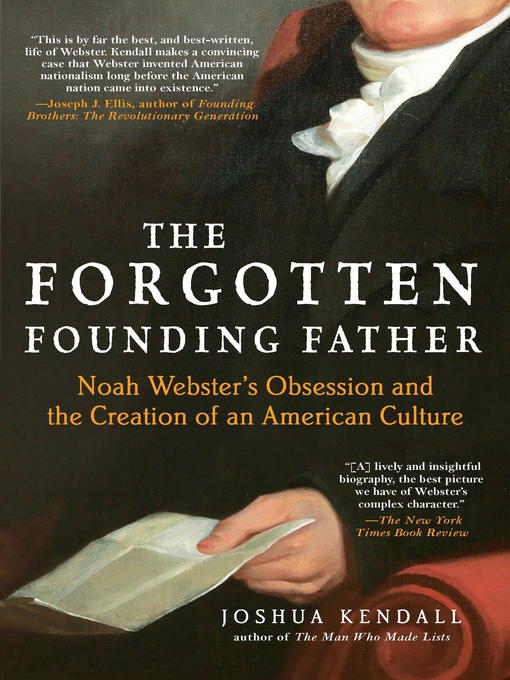Webster hobnobbed with various Founding Fathers and was a young confidant of George Washington and Ben Franklin. He started New York's first daily newspaper, predating Alexander Hamilton's New York Post. His "blue-backed speller" for schoolchildren sold millions of copies and influenced early copyright law. But perhaps most important, Webster was an ardent supporter of a unified, definitively American culture, distinct from the British, at a time when the United States of America were anything but unified-and his dictionary of American English is a testament to that.
- Most popular
- Always Available Classics
- Available now
- New eBook additions
- New kids additions
- New teen additions
- Try something different
- Best Food & Cookbooks
- Are you a Library Book? Cause I'm Checking you Out
- Rainbow Reads
- See all ebooks collections
- Available now
- New audiobook additions
- New kids additions
- New teen additions
- Most popular
- Try something different
- Rainbow Reads
- See all audiobooks collections
- Travel & Outdoor
- Home & Garden
- Food & Cooking
- Health & Fitness
- Sports
- Celebrity
- News & Politics
- Fashion
- Culture & Literature
- Tech & Gaming
- Art & Architecture
- Business & Finance
- Hunting & Fishing
- See all magazines collections





